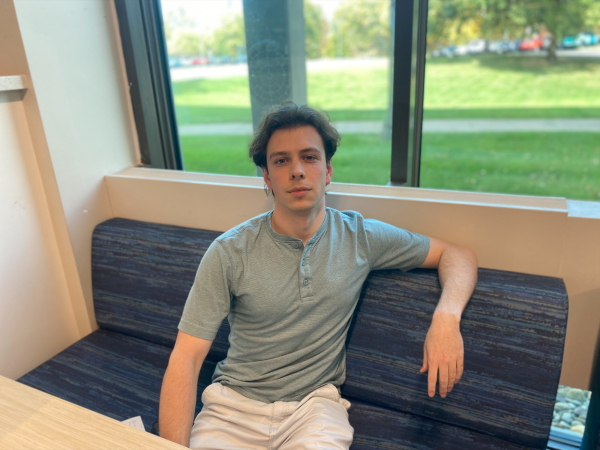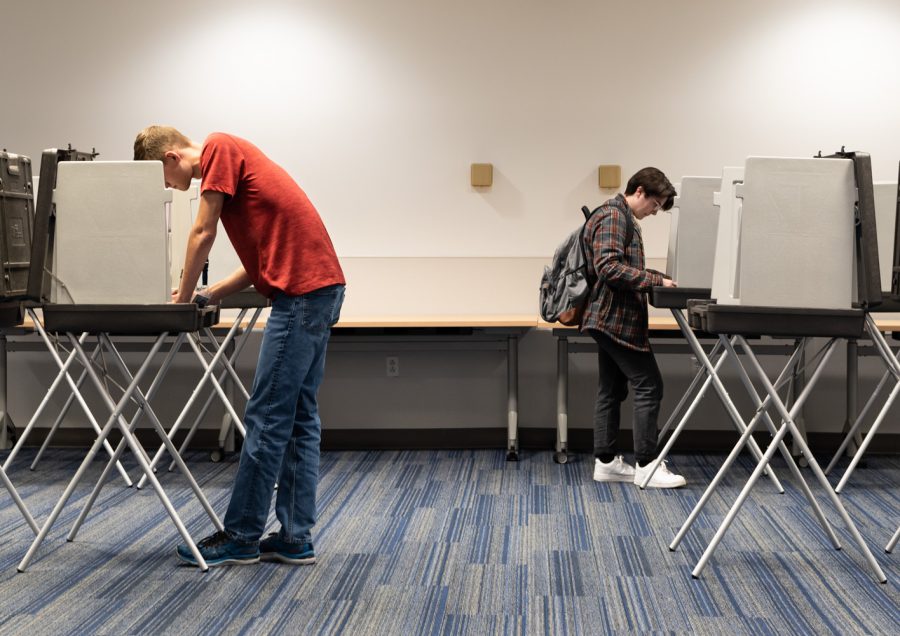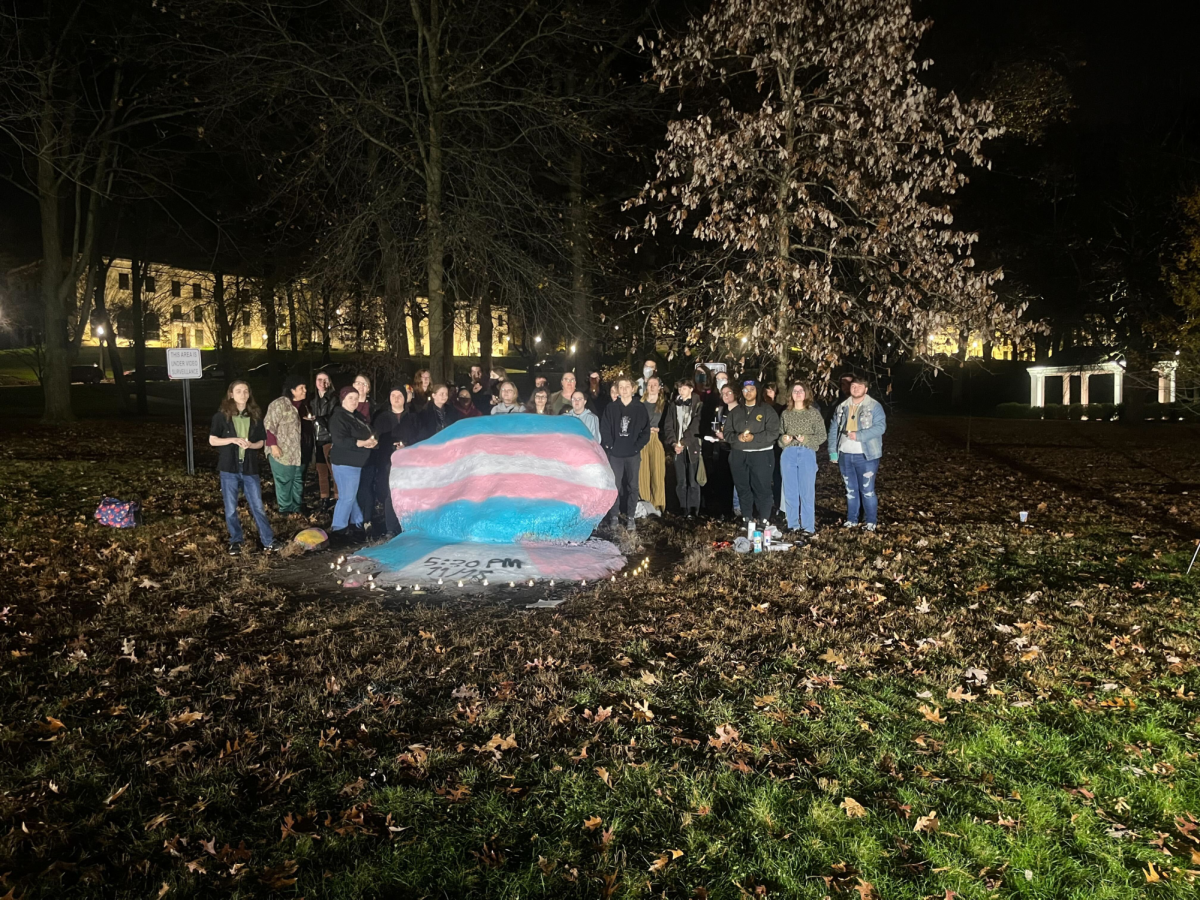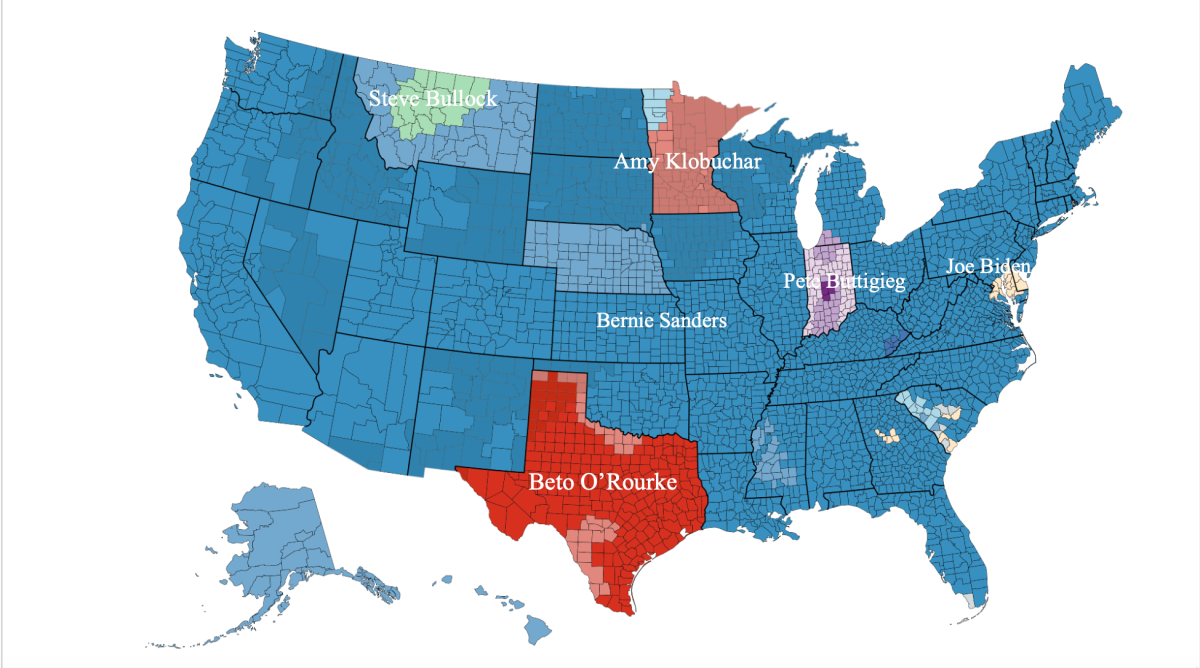Just a day out from the 2024 election, Kent State students are heading to the polls with issues on their minds.
In a survey from The Kent Stater/Department of Sociology and Criminology, 253 students listed the issues that mattered most to them this election.
The top responses were cost of living, abortion, the economy and the climate.
Based on The Kent Stater/Department of Sociology and Criminology survey of 253 Kent State students from Oct. 7 to Oct. 25. | By Alton Northup
The survey ran from Oct. 7 to Oct. 25, and students could participate in it by scanning a QR code on flyers around campus, in The Kent Stater print edition and through a link online.
To better understand how these issues impact students, The Kent Stater did a series on interviews on the topics the week before the election.
Cost of living
Of the students in the survey, 57.7% chose cost of living as one of their top issues this election.
While the cost of living varies between cities, inflation has gradually increased prices everywhere. The cost of college has also increased nearly every decade, but tuition is not the only expense that burdens students.
The First National Bank estimates that students, on average, spend around $2,000 per year. But, for some students, the costs can be even higher. With limited resources and employment opportunities, college students may have a harder time making ends meet.
Karmyn Allen, a freshman psychology student, said coming to college has changed her perspective on the cost of living. Before starting school, she said that she worked and was able to consistently buy the things she needed like toiletries and food.
Now, she said she tries to limit her product waste in the bathrooms.
“I am afraid I’m gonna have to buy more bathing products, and I hate asking for money,” Allen said. “I spend so much money here.”
Allen said that she selected a cheaper meal plan, but it also adds limits to how she can eat because she only has 200 meal swipes.
“I basically have to budget how much I eat,” she said. “I had to go home this weekend, my aunt bought me food because I didn’t want to spend my limited meal swipes here. I never know when somebody or I might need it.”
Allen added purchases at on-campus dining halls or markets offer little relief from high costs. Last year, The Kent Stater reported some items in Rosie’s Market cost 130% more on campus than in neighboring grocery stores.
Allen said she has plans to go to graduate school, which will bring additional expenses even without the cost of housing. The idea that employment isn’t always guaranteed is a struggle, she said.
Allen said the issue of cost of living is important to her because she “lives in this economy” and will have to live with it later.
“The economy won’t be any better after college either,” Allen said. “I think it will probably be even worse.”
Sam Thomas, a sophomore psychology student, said the issue has been especially important for her because college is a time of transition and for “learning about financial independence and budgeting.”
This has become more important for Thomas as she pays for most of her school costs by herself.
College students typically spend on basic necessities like food, housing and transportation, but also may need money for things like hobbies, toiletries and cell phone expenses.
Thomas said that most of her expenses currently include toiletries, which haven’t changed much since she began college. But, she said she has seen changes in her budget due to the cost of school.
“I am afraid that the cost of living will keep going up while wages stay the same and I’ll always be struggling,” Thomas said. “I also have to start thinking about off-campus living away from home, which cost of living factors into heavily.”
Ari Collins is a reporter. Contact her at [email protected].
Abortion
Both voters and campaigns say abortion rights are indirectly on the ballot this year.
In survey, 52.2% of respondents listed abortion as a top issue this election. Just a year after Ohio voters passed the Issue 1 constitutional amendment to protect abortion and reproductive rights, the topic is still fresh on voters’ minds.
With over half of Kent State’s campus being female, most of the student population will be directly affected by the presidential election’s outcome.
Paige Turko, a junior zoology student, is passionate about women’s rights. She said she feels those who support abortion rights and those who do not are very divided in Ohio, especially with the previous year’s Issue 1 campaign.
Turko said protecting women’s rights means voting for them.
“Especially at our age, everyone here is at school; that’d be a really hard time to have an unexpected pregnancy,” said Turko. “If you didn’t have access to abortion care, you would have nothing to do, really, because most people can’t raise a kid while they’re in school and are probably working a job, too.”
Turko had a unique perspective on why abortion rights have become such a prominent topic.
“I think people just want to have control in some way and this is what they’re choosing to make a big deal about. There’s so many things that could become the biggest issue, and for some reason, this has just taken off,” she said.
Turko said while she doesn’t think the government should be controlling the issue, it is important to vote on it while it has the spotlight.
Citizens are not voting directly on abortion rights but rather on the leaders who will make the federal decisions; each leader will have a different perspective. Elijah Rogers, a junior computer science student, said the government’s decisions on abortion rights will inevitably be biased.
As those in power are largely males over the age of 60 with kids, he said decisions end up being male-oriented.
“They’re not going through the same things everyone else is, they don’t have the same experiences, they’re in different parts of their lives,” Rogers said. “So, how do they have that choice?”
Rogers said college students simply are not ready for the responsibilities of having a child yet, which he described as a huge, life-changing event. For many people, it would mean taking care of a child while paying off student debt, taking classes and working on top of it all.
Anna Waltz, a junior computer science student, said everyone deserves the ability to control their own lives and futures.
“A lot of people are probably in the situation where they need to be able to choose because they probably need to be able to say, ‘I need an abortion because I can’t handle this in my life right now,’” Waltz said.
She added voting makes sure everyone’s voice is heard rather than a small group of biased individuals who are mostly not affected by abortion laws.
Maha Hanash, a junior biology student, said some people may have religious reasons as to why they personally wouldn’t get an abortion. But, she doesn’t think it’s something government officials should be debating on or that the country should be deciding on.
“I think that everybody should have their own rights,” Hanash said. “I would not go vote for either side because, at the end of the day, that’s somebody’s choice whether they want to have an abortion or not.”
Hanash said whether or not somebody would personally choose to get an abortion should be thought about separately from whether or not women in America should have the right.
“It’s the woman’s choice,” Hanash said. “Whatever she wants to do, she can do.”
Lauren Cohen is a beat reporter. Contact her at [email protected].
Economy
121 students listed the economy as an issue that mattered most to them in the election — equal to 47.8% of students who took the survey.
Gordon Schechter, a junior finance major who voted in the election, said he does have slight concerns about the economy, and described his thoughts on it as “overall negative.”

He added the economy hasn’t had much of a personal effect on himself other than high gas prices, and his concerns lie with “broader” economic policies.
“It influences my views based on how each candidate would affect more large-scale changes to the economy,” Schechter said. “Small economic changes tend to be a bit more local.”
Spencer Lehrian, a junior majoring in business management and entrepreneurship who also voted in the election, also expressed concerns about the economy. Most notably, issues related to small businesses, the housing market and inflation.
“Policy changes have really affected the average American,” Lehrian said.
Lehrian said the economy was a “major issue” in regards to his voting choice, and that it affects his decision-making on a daily basis. He added his concerns for when he becomes a homeowner.
“I’m going into an economy where the homeowner gets screwed,” Lehrian said. “BlackRock and all these major corporations buy up these houses and sell them at a premium price.”
Cecilia Fana is a junior criminology and justice studies major who also voted in the election. She believes the economy is in a bad place with higher prices, but it didn’t affect her voting decisions.
Fana said she doesn’t notice the effects of inflation often because she lives at home with her parents, who mostly handle purchasing groceries and other goods. Living with family can offer students a safety net in times of potential economic hardship.
While many students said they feel the economy isn’t doing well right now, economics professor Michael Ellis disagreed.
“The economy is expanding at a healthy pace, and as a result, there’s been a lot of job creation over the last six months,” Ellis said.
To Ellis, many student concerns regarding the economy lie with inflation, and he said the issue is improving with higher wages and incomes. He added some students may be struggling with higher prices because their incomes aren’t at a high enough level.
“Since the summer of 2022, inflation has generally been falling,” Ellis said. “Students aren’t in their prime earning years yet, so they may not have the growth of income to keep up with the price increases.”
Ellis is also skeptical about the effects both candidates will have on the economy if they are elected to office. He questioned several of Harris and Trump’s economic policies and believes both could do more harm than good.
“Neither candidate can adequately deal with inflation because inflation is much more functional with what the federal reserve does,” Ellis said.
John Engoglia is a beat reporter. Contact him at [email protected].
Climate
Of the 253 students who participated in survey, 43.1% said climate is an important issue to them this presidential election.
Senior fashion design major Emily Horn has worked to reduce her impact on the environment as a designer dedicated to sustainability.
“It’s definitely going to be swaying the way I vote, and if there is a candidate who doesn’t care about climate change, I will not be voting for them,” Horn said.
She thinks that her beliefs on climate change align with a lot of other Generation Z students.
The fashion industry is considered the third most polluting industry in the world producing about 10% of our annual carbon footprint. Kent State’s fashion program focuses on sustainability and social responsibility while exploring innovative approaches to reduce waste in the fashion industry, Horn said.
“I think right now Kent State really emphasizes slow fashion and putting meaning behind what you’re making,” Horn said.
Earth’s atmospheric temperature has been steadily rising over the past century, but the rate of warming has accelerated in recent decades.
“It is beyond any type of reasonable doubt that the amount of greenhouse gasses that human beings are putting into the atmosphere is causing our global temperature to rise,” said Cameron C. Lee, an associate professor in the Department of Geography. “Over the last 140 years or so, we’ve already seen about a degree to 1.2 degrees Celsius increase — that’s over two degrees Fahrenheit increase in our global temperature, and that is concerning.”
Cameron said there are a lot of things that can be done on various levels of government that can be helpful for the climate and vice versa.
Students who view climate change as an important issue to them should research how candidates align on the issue not only at the top of the ticket but also down the ballot, Cameron said.
Cameron added that surveys have shown that out of thousands of climate scientists, nearly 99% are in agreement that climate change is happening and is caused by human emissions of fossil fuels.
“We only have one Earth and if it gets too bad, we can never go back,” Horn said. “Life in itself is a miracle and we need to do everything we can to protect that. Climate change is already posing threats to coral reefs and fragile ecosystems, so if we don’t act now, things are going to disappear forever.”
Lauren Bischof is a beat reporter. Contact her at [email protected].












